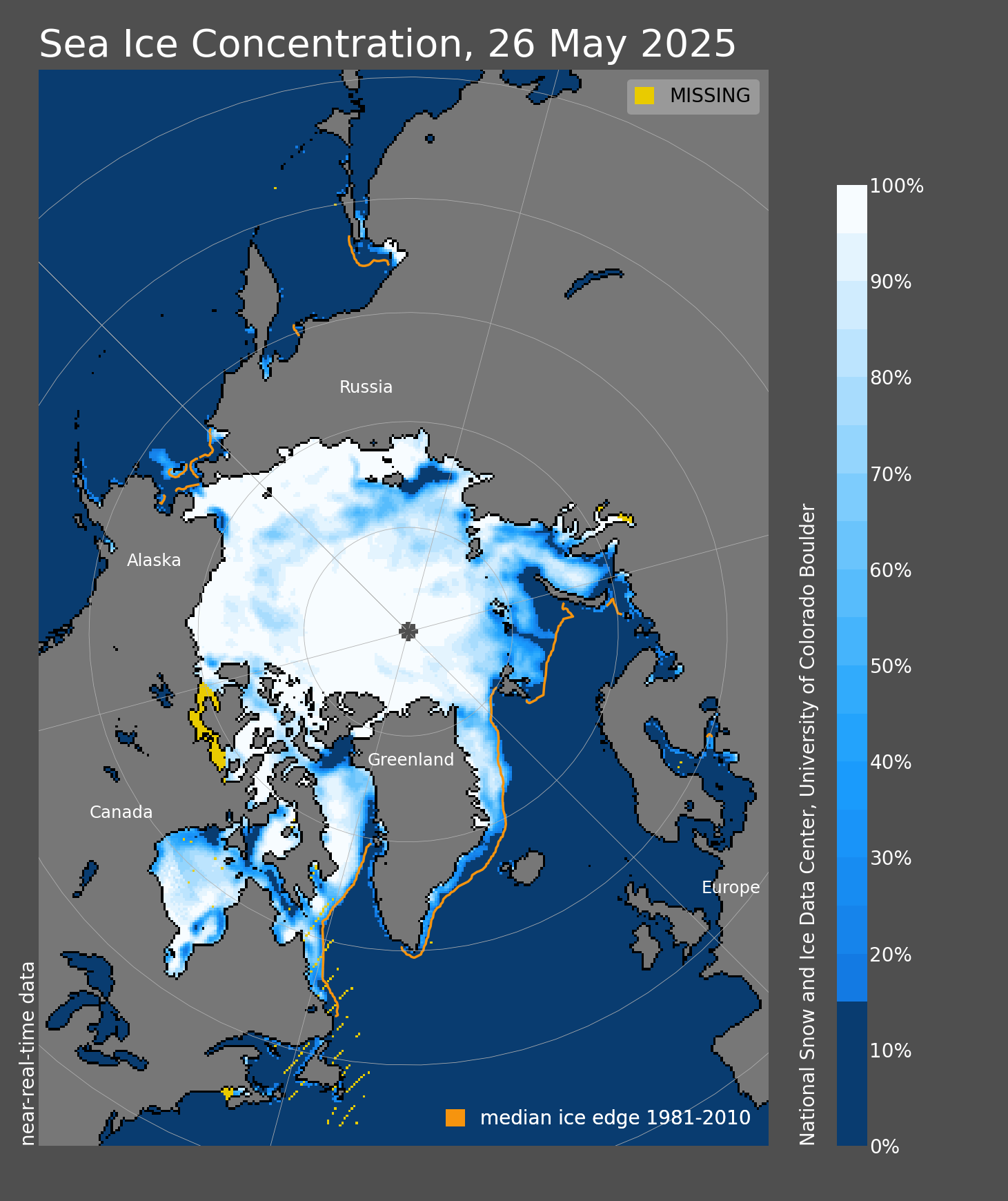We continue to get further evidence of the impact of climate change on our planet. The last report comes our way from the National Snow and Ice Data Center in Boulder, Colorado, which released its 2018 data on the Arctic Sea ice just last week, and as you might have guessed the news isn’t great.
Working in conjunction with NASA, the NSIDC has been monitoring the Arctic Sea ice using satellites for 39 years. The organization indicates that its data for 2018 shows the second smallest amount of ice on record, with only last year’s totals being smaller. According to the report, the ice reached its extent on March 17, which is the point that it stopped growing for the year and will now begin its retreat.
This year’s Arctic Sea ice reached a maximum size of 14.48 million square kilometers (5.59 million square miles), which may seem like a lot but in actuality it is 1.16 million square kilometers (448,000 square miles) below the average size from 1981 to 2010. It was around then that we began to observe a rapid changing in the ice that caused it to retreat at a faster rate and not grow quite so large each year. The four smallest coverage areas of the sea ice were measured in 2015, 2016, 2017, and now 2018, marking a trend that doesn’t seem to be slowing down.
The NSIDC has seen similar numbers in the Antarctic as well, which had its second lowest minimum extent ever recorded this year, with only 2017 being smaller. But unlike the Arctic, the Antarctic has seen temperatures this season that are closer to its 1981-2010 average, which means the impact of climate change could be slowing, at least for this season. Longer term observations will examine the impact over time, but as we all know more and more ice is breaking free from the frozen continent as well.
A month or so back I pondered where all of the North Pole explorers had gone. Considering the rapidly shifting ice flows in the Arctic, I think its safe to say we have our answers. The region has gotten so unstable and difficult to cross that I suspect we’ll see fewer and fewer expeditions across that part of the world. I know there is at last one or two scheduled to take place next year, but beyond that we may have seen the end of the expedition season to the North Pole. The Arctic Ocean is just becoming too unstable and difficult to cross, and likely will remain that way for the foreseeable future.
- Gear Review: The Xero Scrambler Mid is an Ultralight Hiking Shoe for Spring - March 1, 2023
- Gear Review: Yeti Roadie 48 Wheeled Cooler - August 18, 2022
- Kristin Harila Continues Pursuit of 8000-Meter Speed Record - August 16, 2022
